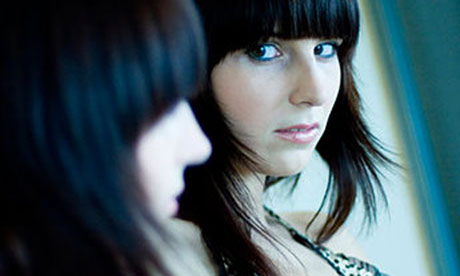
One of skincare brand Dove's latest facets to its international Real Women marketing campaign is a film called Real Beauty Sketches. It begins with a woman telling a hidden FBI forensic artist what she looks like, while he draws. Then she is described by a stranger, informing a kinder, second picture. This process is repeated with another woman and when the subjects finally view their pairs of portraits, they emote over the discrepancies between them. Cue the feel-good tagline: you are more beautiful than you think.
There are many aspects of this that one could take issue with. None of the drawings actually do the women justice, largely due to the creepy, photo-fit style. There was the revelation, too, that previous Real Women images were retouched. And, as if all that isn't enough, an article in Scientific American has pointed out that empirical research says that, actually, you think you're more beautiful than you are.
We have a deep-seated need to feel good about ourselves and we naturally employ a number of self-enhancing (to use the psychological terminology) strategies to achieve this. Social psychologists have amassed oceans of research into what they call the "above average effect", or "illusory superiority", and shown that, for example, 70% of us rate ourselves as above average in leadership, 93% in driving (across the ages and genders) and 85% at getting on well with others – all obviously statistical impossibilities.
We rose-tint our memories and put ourselves into self-affirming situations. We become defensive when criticised, and apply negative stereotypes to others to boost our own esteem. We strut around thinking we're hot stuff.
Psychologist and behavioural scientist Nicholas Epley oversaw a key study into self-enhancement and attractiveness. Rather than have people simply rate their beauty compared with others, he asked them to identify an original photograph of themselves from a lineup including versions that had been morphed to appear more and less attractive. Visual recognition, reads the study, is "an automatic psychological process, occurring rapidly and intuitively with little or no apparent conscious deliberation". If the subjects quickly chose a falsely flattering image – which most did – they genuinely believed it was really how they looked.
Epley found no significant gender difference in responses. Nor was there any evidence that those who self-enhanced the most (that is, the participants who thought the most positively doctored pictures were real) were doing so to make up for profound insecurities. In fact, those who thought that the images higher up the attractiveness scale were real directly corresponded with those who showed other markers for having higher self-esteem. "I don't think the findings that we have are any evidence of personal delusion," says Epley. "It's a reflection simply of people generally thinking well of themselves." If you are depressed, you won't be self-enhancing.
Knowing the results of Epley's study, it makes sense that many people hate photographs of themselves so viscerally – on one level, they don't even recognise the person in the picture as themselves. Facebook, therefore, is a self-enhancer's paradise, where people can share only the flukiest of flattering photos, the cream of their wit, style, beauty, intellect and lifestyles. It's not that people's profiles are dishonest, says Catalina Toma of Wisconsin-Madison University, "but they portray an idealised version of themselves". (People are much more likely to out-and-out lie on dating websites, to an audience of strangers.)
A study Toma conducted this year found that admiring one's own Facebook profile has palpable self-affirming effects, and that people naturally gravitate to Facebook for a boost when their ego has been knocked. Her unwitting participants were asked to carry out a public speaking task, only to receive crushingly negative feedback. Half of the subjects were allowed to peruse their own Facebook profiles before receiving the feedback, and this group turned out to be way less defensive than the others. Instead of accusing their evaluator, for example, of incompetence, they said: "Yeah, there's some truth to this feedback. Maybe there are things I can do to improve my performance."
Toma asked yet more participants to give the same speech, only this time she gave them either neutral or terrible reviews. They were then presented with a choice of five (fake) further studies to take part in – one involving logging on to Facebook, and four decoys. "We were excited to find," she says, "that when participants' egos were threatened, they chose Facebook at twice the rate than the others" – evidence of what she calls "an unconscious mechanism to decide to repair feelings of self worth. This is why people spend more time on Facebook after a hard day or something bad happening – because it reassures you that you're connected, that you have interesting activities and hobbies, photographs, etc." However, despite this positive emotional benefit, research has also shown that we can easily overlook the extent to which others embellish their profiles, and feel sad because our real lives aren't as good as others' appear.
Whether self-enhancement is healthy is oft-debated, says Epley. "Taking it to an extreme, you get delusional kinds of self-enhancement, but in moderation, of the kind we often find, it's probably not a terrible thing for you. That said, I'm a huge fan of accuracy – generally, you're better off knowing what you are really like."

